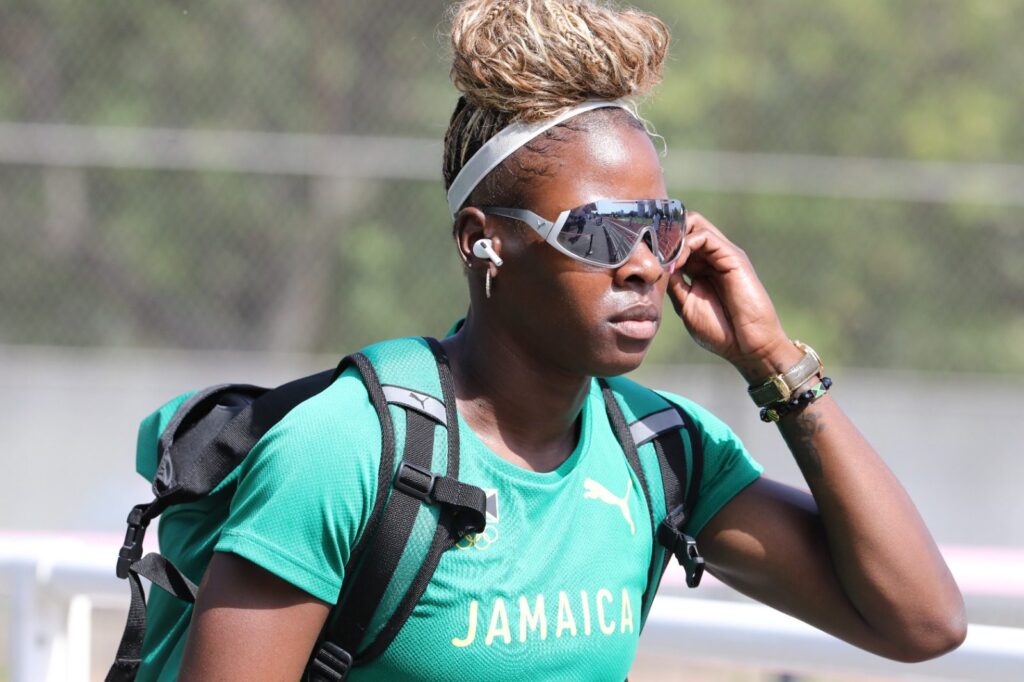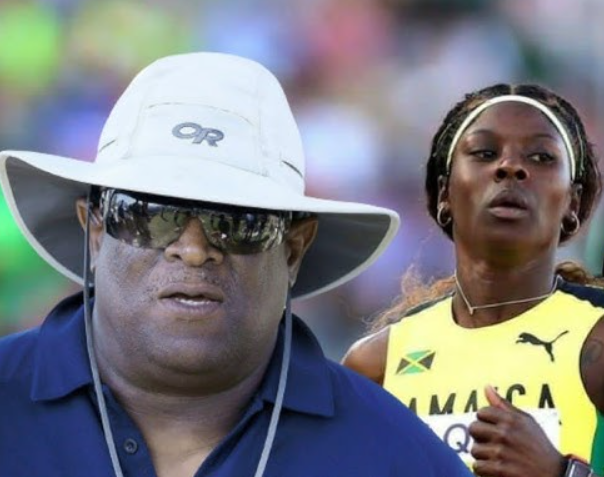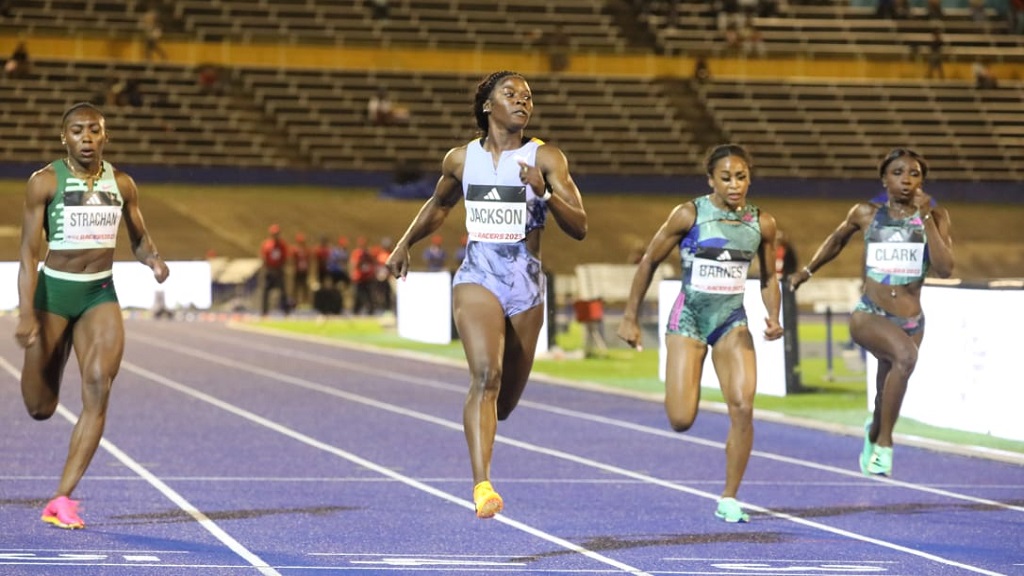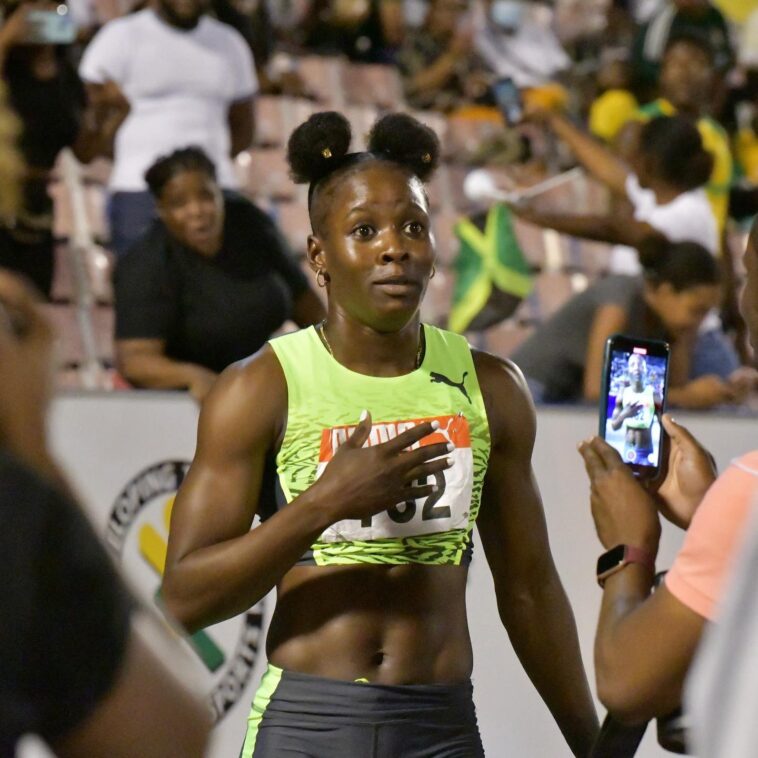Shericka Jackson, one of Jamaica’s brightest sprinting stars, faced an unexpected setback at the recently concluded Paris 2024 Olympics. Despite high expectations, she couldn’t perform at the games thanks to injury. The undisclosed injury, speculated to be an Achilles issue, not only sidelined her from key events but also raised questions about accountability and pre-games preparations.
While injuries are an unfortunate reality in sports, the lack of transparency and apparent accountability surrounding Jackson’s injury has rightfully been talking points for fans and pundits alike.
The Paris Olympics Debacle

Heading into Paris, Jackson was a favorite to win the sprint double. Many people felt like she didn’t perform to her best in the women’s 100m final last year in Budapest, but felt encouraged by her chances. While there was concern about the late start to her season and her losing a 200m race, winning the double at the Jamaica Senior trials offered renewed hope. Based on that performance, she needed probably three races and she would be ready to go.
https://www.youtube.com/watch?v=ej3lBhxnF_A
However, on the eve of Paris 2024, Jackson pulled up doing a 200m run in Hungary, putting her participation in doubt. Concerns were raised when she pulled out of the women’s 100m at the Olympics. We were then stunned when she withdrew completely. What puzzled many was not the injury itself – athletes often face physical challenges – but the way it was handled. There was little communication from Jackson or her team regarding the specifics of her injury, its severity, or how it might have affected her preparation. The abrupt nature of her withdrawal left fans and the athletics community with more questions than answers. Jackson left a comment under an Instagram post asking who else made the qualifying time. For her, it didn’t matter if she withdrew abruptly as no one else could have been selected.
Accountability and Transparency
In the world of elite sports, accountability and transparency are crucial, not just for the athletes themselves but for the teams, sponsors, and fans who support them. Injuries are often seen as part of the risk that comes with high-level competition. However, the handling of such situations can significantly impact an athlete’s reputation and career.
The Shericka Jackson case brings to light the importance of clear communication. Was there a failure in her training regimen that led to the injury? Were there warning signs that were ignored? Or was the injury simply a case of bad luck? These are questions that, if addressed openly, could provide valuable insights into the realities of competing at the highest level. My view on this is if she was injured from the beginning of the season, scrapping the 200m could have helped. And, if she was still dealing with niggles, why did she double at the Olympic trials?
The Role of Athletes and Their Team

Shericka Jackson’s situation underscores the need for athletes and their teams, in her case, MVP Track Club, to be proactive in managing physical health and public relations. When an athlete of Jackson’s calibre withdraws from a major event, the expectation is that there will be a level of accountability. There should be an explanation that helps to manage expectations and maintain trust with supporters.
Moreover, this incident highlights the role of the athlete’s support team. From coaches to medical staff, the team is responsible for ensuring that the athlete is in the best possible shape to compete. If there were lapses in judgment or preparation, acknowledging them is essential. Such transparency fosters personal growth and sets a good example for younger athletes.
Moving Forward

As Shericka Jackson looks ahead, the lessons from the Paris Olympics should catalyze improvement. Taking accountability for what happened—or didn’t happen—can be empowering. It can provide a foundation for making necessary adjustments, whether in training, communication, or overall approach to competition.
Injury setbacks can often be a turning point in an athlete’s career, offering an opportunity to reassess and come back stronger. For Jackson, embracing this moment with transparency and accountability could solidify her status as a phenomenal athlete. But, it also shows she’s a resilient and responsible role model.
Conclusion
Jackson’s withdrawal from the Paris Olympics due to injury is a sobering moment in her career. While the physical toll of the injury is undeniable, the incident shone a light on the importance of accountability in sports.
As fans and observers, we can only hope that this experience will lead to greater transparency and stronger performances. Jackson has the talent and determination to overcome this setback. With the right approach, she can turn this into a stepping stone towards even greater success.






GIPHY App Key not set. Please check settings